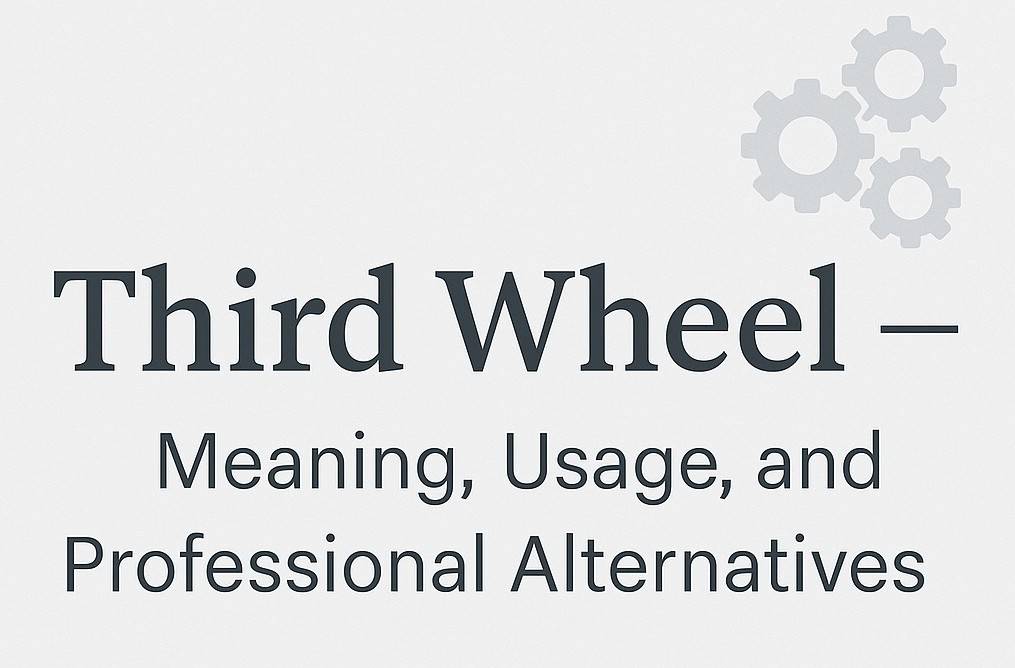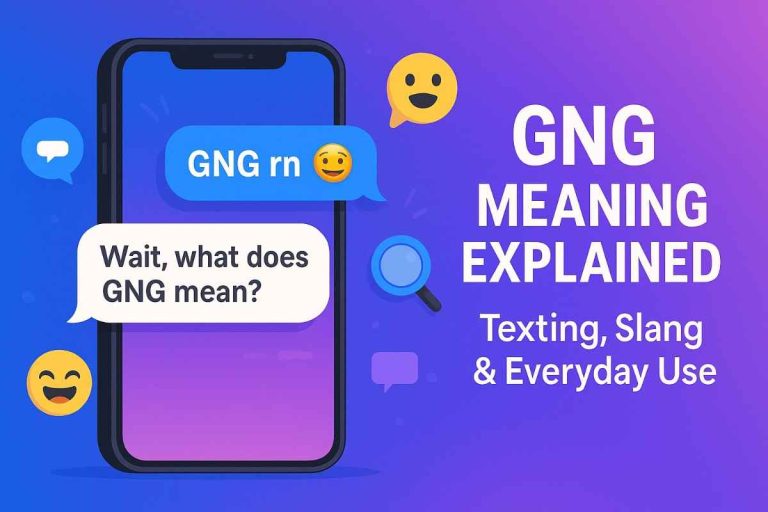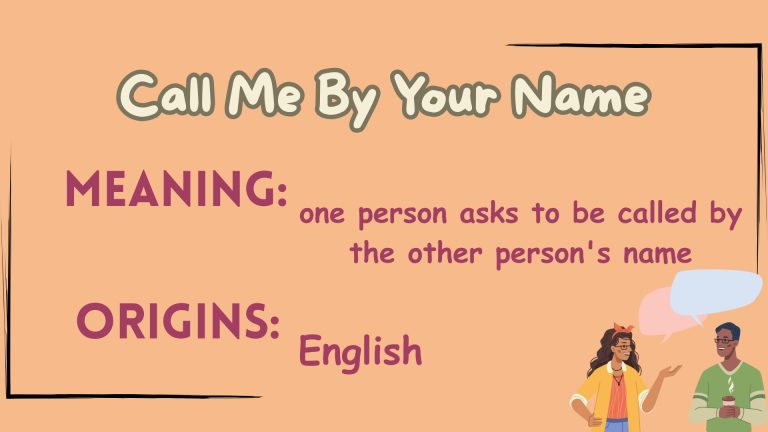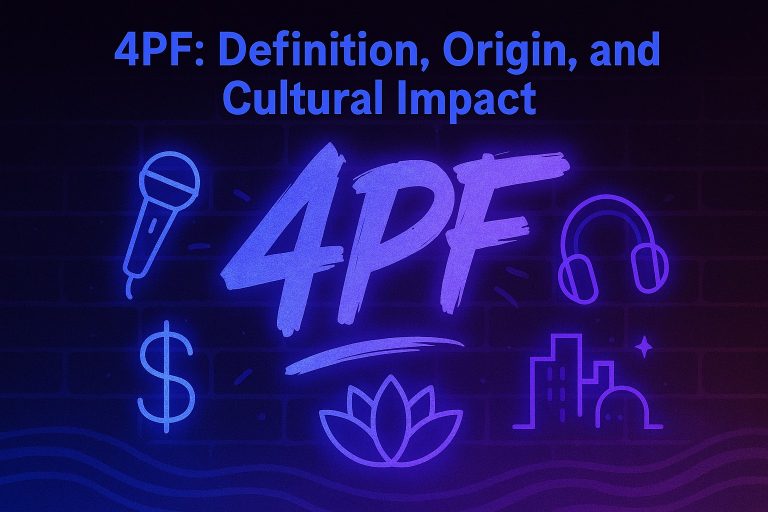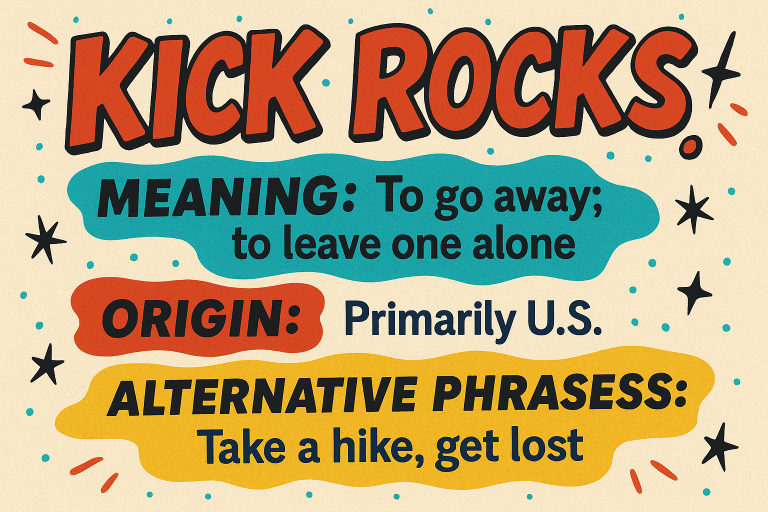Third Wheel — Meaning, Usage, and Professional Alternatives
You’ve probably heard someone say they’re a “third wheel.” Maybe you’ve even felt like one. It’s a common phrase. It shows up in casual chats, memes, and awkward social settings. But what does it really mean? And more importantly, should you use it in formal or professional settings? Let’s break it down.
What Does “third wheel” Mean?
“Third wheel” refers to someone who feels out of place when with a couple or close group. It suggests they’re extra or unneeded. It often implies awkwardness. The phrase can feel harmless, but in some contexts, it can come off as negative or self-deprecating.
The idea comes from old transportation. A tricycle has three wheels. But in a romantic or tight-knit duo, a third person can seem like that extra wheel no one asked for.
It doesn’t always mean the person is disliked. Sometimes it simply reflects how they feel — like they don’t belong or aren’t contributing.
When and Where to Use “third wheel”
“Third wheel” works in informal speech. It fits in personal conversations, social media, or casual writing.
Do use it when:
- Talking with friends
- Sharing light-hearted stories
- Describing funny or awkward moments
Avoid using it when:
- Writing professional emails
- Speaking in meetings
- Talking to clients or colleagues
In professional settings, it’s better to use more neutral or polite phrases. Let’s look at some options.
Also Read – Going Ham: Meaning, Alternatives, and Polite Responses
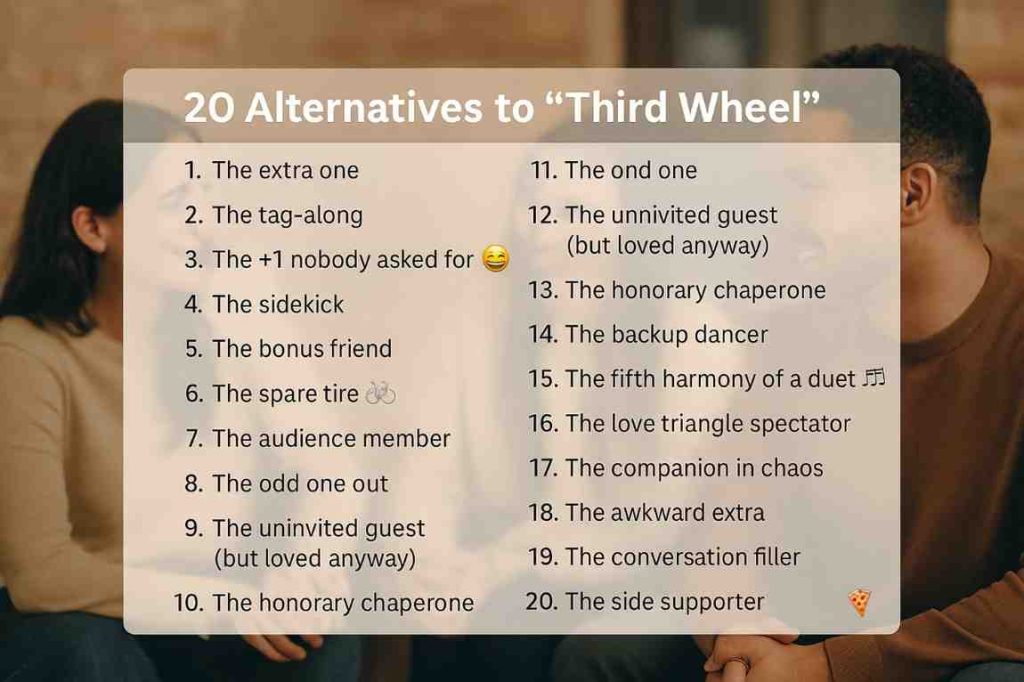
20 Alternatives to “Third Wheel”
1. Additional participant
Meaning: Someone added to a group
Explanation: Neutral tone, doesn’t imply discomfort
Example: “We had an additional participant join our lunch meeting.”
Best Use: Emails or reports
2. Extra member
Meaning: A person not part of the original plan
Explanation: Implies someone joined unexpectedly
Example: “He became an extra member during the client discussion.”
Best Use: Professional conversations
3. Observer
Meaning: Someone watching, not active
Explanation: Shows distance without negativity
Example: “She joined as an observer in the session.”
Best Use: Meetings or trainings
4. Onlooker
Meaning: A person watching but not part of it
Explanation: Slightly casual, still professional
Example: “I felt like an onlooker during their discussion.”
Best Use: Reflective writing
5. Passive attendee
Meaning: A quiet participant
Explanation: Suggests presence but no involvement
Example: “He remained a passive attendee.”
Best Use: Meeting minutes or summaries
6. Non-participating guest
Meaning: Someone present but not involved
Explanation: Clear and neutral
Example: “We had a non-participating guest in the group.”
Best Use: Reports or documentation
7. Support role
Meaning: Someone present to help if needed
Explanation: Adds value, avoids negativity
Example: “She was there in a support role.”
Best Use: Team settings
8. Supplementary presence
Meaning: Extra but supportive
Explanation: Formal and non-judgmental
Example: “His was a supplementary presence in the meeting.”
Best Use: Formal reports
9. Secondary attendee
Meaning: Not the main guest or participant
Explanation: Neutral, not dismissive
Example: “She joined as a secondary attendee.”
Best Use: Event recaps or summaries
10. Non-core member
Meaning: Not part of the main team
Explanation: Clear distinction, no shame
Example: “He was a non-core member of the delegation.”
Best Use: Organizational settings
11. Peripheral guest
Meaning: On the edges of the group
Explanation: Describes distance without being rude
Example: “I was more of a peripheral guest.”
Best Use: Internal conversations
12. Unplanned attendee
Meaning: Joined without prior notice
Explanation: Honest and direct
Example: “We had an unplanned attendee at the briefing.”
Best Use: Logs or event notes
13. Extra set of eyes
Meaning: Present for feedback or oversight
Explanation: Positive and helpful tone
Example: “He joined as an extra set of eyes.”
Best Use: Reviews or audits
14. Floating participant
Meaning: Not tied to a specific role
Explanation: Implies flexibility
Example: “She was a floating participant today.”
Best Use: Team updates or retrospectives
15. Detached observer
Meaning: Watching from a distance
Explanation: Formal and descriptive
Example: “He acted as a detached observer.”
Best Use: Reports or academic writing
16. Supplemental attendee
Meaning: Not required but included
Explanation: Sounds supportive
Example: “She was a supplemental attendee.”
Best Use: Conference summaries
17. Bystander
Meaning: Someone present but not engaged
Explanation: Common and understood
Example: “I was more of a bystander.”
Best Use: Casual internal dialogue
18. Adjacent colleague
Meaning: Not directly involved
Explanation: Polite and professional
Example: “He joined as an adjacent colleague.”
Best Use: Multi-team projects
Final Words
So, when you look at it, “third wheel” is one of those phrases everyone knows but no one really wants pointed at them. It works fine in casual chatter, yet it can feel a bit sharp in a workplace or formal setting. That’s why having a few smoother alternatives helps you keep things polite without losing the meaning. And honestly, language shifts all the time, so the way you phrase something can change the mood of a whole conversation. If you keep that in mind, you’ll pick the right expression almost without thinking.

A former editor and grammar geek, David Langford has spent years refining the art of clear communication. He combines his journalism background with a knack for teaching, offering straightforward tips to master tricky grammar rules. When he’s not proofreading, he’s probably debating Oxford commas.

